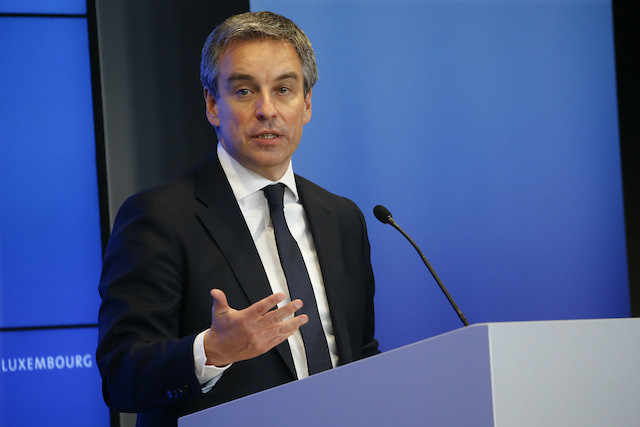Meisch spoke during a press conference a day after prime minister Xavier Bettel (DP) had announced stricter lockdown measures to clamp down on the spread of the coronavirus.
“The number of new infections was at a high level. This posed a big challenge, and we reached our limits,” said Meisch about the propagation of the coronavirus in the education system over the past weeks.
He had previously faced criticism from parents and teachers’ unions over delays in the tracing of infections within schools and day care facilities.
A petition this week called for parents not to be punished if they decide to violate compulsory schooling laws by keeping their children at home to protect them.
For the week of 4 January, primary school children will receive exercises from teachers to do at home while secondary levels will switch to a digital classroom model. Meisch emphasised that the week of distance learning was not a holiday week and that pupils were required to attend online.
Exams scheduled for the first week of January have been pushed back to the following week, Meisch said.
With crèches and day care facilities also closed from 28 December until 11 January, parents of children under the age of 13 can apply for extra leave, as was the case during the first lockdown.
Test before return
“We are doing everything we can to keep covid-19 out of schools,” Meisch said, adding that all teachers and pupils would be invited to get tested for coronavirus before classroom teaching resumes. “We want to return as safely as possible,” he said.
Even after 11 January, upper secondary years will continue with hybrid teaching models to reduce the number of students on school grounds and using school transport.
All classrooms will be equipped with CO2 measuring devices to remind teachers and students to open the windows and let fresh air in, Meisch said. A working group is analysing whether education sector staff could be prioritised once vaccination of the population begins, he said.
The minister also acknowledged the toll the pandemic is taking on teachers, students and parents. The ministry has set up a helpline (8003 9393) over the Christmas break for anyone suffering from mental health problems. A helpline for remote learning tips (8003 9090) will also be open in January.
Lifelong learning, music schools and other education offers too will switch to remote learning and any after school activities have been cancelled for the week of 4 January.
“The goal is for the health crisis not to become an education crisis,” Meisch said about the government’s policy of allowing as much classroom teaching as possible. “Generation covid should have the same opportunities in future as their friends before and after them,” he said.
At the same time, infections needed to go down for the healthcare sector to catch its breath, Meisch said.
No data on schools
As the number of infections rose in the country, it also did so in schools. While between 23 and 29 November, there were 700 cases of coronavirus in Luxembourg’s schools, this climbed to 758 the following week and stood at 890 the week of 7 December.
To account for the rising numbers, the government introduced a new tier in its assessment.
While there were initially only three scenarios--from isolated cases to suspected infections among pupils and teachers from the same group--the ministry added a fourth scenario that reflects wider contagion within the school community and between different classes.
However, Meisch said the ministry did not plan to reveal data on which schools were most affected saying he did not want them to be “subject to some kind of ranking.” He added that cases in schools were highest in those regions where the virus was generally more present in society.
Per 10,000 residents, Diekirch and Vianden were the cantons reporting the highest number of new infections between 23 November and 13 December, according to a government report.
Esch-sur-Alzette with 4,052 cases and Luxembourg City with 1,549 led in terms of overall numbers.
